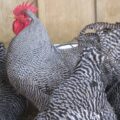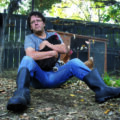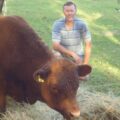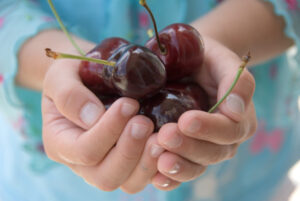
The recent furore around free-range eggs has prompted me to write a bit about a genuine free-range egg farm and also about egg farming in general.
Despite a company looking like they were not being ethical there are many credible free-range egg farmers in New Zealand.
There are two tricky/sticky questions that often come up when it comes to egg production, being; what happens to male chickens and what happens when egg production drops?
The reality is that no matter how much these farmers care for their birds, they have to run a commercially viable business. Farms buy in female pullets, they have no place for roosters and once egg production drops the birds are culled and often used in pet food production or possibly chicken stock.
All farming involves the culling of animals/birds well within their natural life expectancy but surely that is what farming is about? As long as it is humane then isn’t this just what farmers have to do?
Most of us enjoy a roast leg of lamb without worrying about the fact that the lamb didn’t get to see in its first birthday… Our roast chicken is probably lucky to have reached 4 months in age.
Onto free-range egg farming, with this disclaimer: I look after the Facebook page for Big Paddock free-range eggs so therefore I do have an interest in this particular farm. However even with a commercial relationship, I wouldn’t wax lyrical unless I felt inclined to. Big Paddock eggs are distributed by Henergy eggs. Henergy cage-free eggs are in the Wairarapa and have the SPCA blue tick.
I have visited Big Paddock many times and been able to wander as I like, taking photos and small videos of whatever takes my fancy. There are no secrets, the farm is what it is. Visitors are not encouraged, people can bring in unwanted bugs (as in germs) and also it is a farm not a tourist operation. Big Paddock is in the Whangaripo valley near Matakana and they also sell eggs under the Whangaripo eggs label.
Big Paddock hens spend their daylight hours free to roam and forage amongst trees, paddocks and alongside streams. It is a delight to visit and see so many hens (30,000 or so) living such a good life and looking healthy and happy. Not that I am an expert on hen happiness but they look pretty good to me.
Understanding that hens were naturally forest birds, owner Matthew Quested has a huge tree planting plan in place and there are a few thousand young trees that in a year or two will change the face of the farm. Firstly fast growing varieties such as poplars have been planted but there are also slower growing natives in amongst them so that eventually the natives can take over, in the meantime the hens have shelter – and trees to perch in.

Hens love a place to perch and if there are not trees nearby then tractors or even people will suffice.
The childhood story of Henny Penny is not so far from the truth as hens do have an innate fear of open spaces and what may be above them although probably it is more a concern of marauding hungry hawks as opposed to worrying about the sky falling on top of them.

A common concern about free range farms is whether the hens actually go outdoors or if the doors are small and few and the majority of hens stay where they are. Having been at Big Paddock early in the morning and watched the doors open, the hens do most definitely make their way out of the shed and the sides of the sheds also open to allow ventilation throughout the day. Yes there are hens that stay close to the sheds rather than venture into the paddocks but as the trees grow and form adequate shelter and protection it is hoped that this will entice all of the hens out from the safety of the buildings.
Matthew feels very confident that there are some great free-range egg farms around the country and that the scandal that is currently unfolding is only the minority.
It is however difficult for us as the shopper to know whether the free-range eggs we are buying are truly that. Some farms have the SPCA blue tick accreditation for animal welfare. The blue tick does not mean that the hens are free range but that the eggs are farmed ethically with a high regard for animal welfare. It also doesn’t mean that those without the tick are substandard. The SPCA tick does come at a financial cost and not all farmers believe this is how it should be done.
Matthew hopes that the egg industry board will initiate an independent auditing system of free range farms to give an assurance to shoppers that their eggs are genuinely what they are labelled to be.
In the meantime,I guess you just need to have some faith that most farmers are trying to do the right thing!
Are you a free-range egg shopper?







I have been a free-range egg shopper for decades, ever since Frenz first brought them out and you bought them loose in brown paper bags. I’m still a Frenz fan, but I do love Big Paddock’s planting programme – the hen perching in the tree was adorable! It’s all about the animal welfare for me and if free-range eggs disappeared from the market, I would give up eating them.